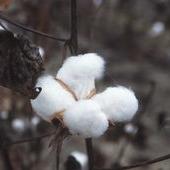OUAGADOUGOU, Burkina Faso -- Leaders of West African nations could barely contain their glee in mid-October when the World Trade Organization announced it had upheld a previous ruling declaring the United States has not done enough to cut back its subsidies to cotton farmers. The ruling stems from Brazil's 2002 complaint to the WTO that U.S. farm supports depress world prices and create undue harm to Brazilian cotton farmers. Brazil's president Luiz Ignacio Lula Da Silva was visiting Ouagadougou, Burkina Faso, when the ruling was made public. He continued to portray the issue of cotton subsidies in terms of the rich world versus the poor world, highlighting the fact that the world's wealthiest government offers handouts to its farmers while the estimated 10 million people who depend on cotton from the so-called Cotton Four, or C-4 -- Benin, Burkina Faso, Chad and Mali -- barely scrape out a living. As the third world celebrated, the U.S. government sat glum. U.S. officials said they would read into the ruling's fine print before deciding whether to appeal. Appeal or not, the writing appears to be on the wall: Barring a miracle, the era of huge subsidies to cotton farmers is most likely over. Even staunch supporters of the fiscal year 2005 $30 billion price support program can't fail to notice other countries emboldened by Brazil's move beginning to make claims against other U.S. agriculture subsidies.
West African Nations Should Use WTO Cotton Decision as Opportunity for Reform

